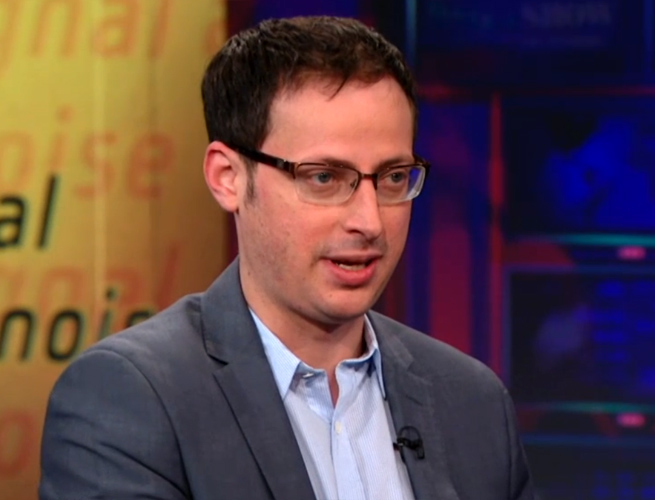Nate Silver, the geek hero who correctly predicted all 50 states in the 2012 presidential election using data science, says he expects to be back for 2014 and 2016.
Silver, formerly a successful baseball statistician, predicted the outcome of the 2008 election with 49 of 50 states called correctly. From that point on, he continued to refine his proprietary model of averaging polls and weighing in additional factors like economic data so he could forecast 2012 even better. That clearly worked out.
While he kicked serious ass at forecasting this time around and could just retire to pursue other things, he’s going to stick around for more. Silver confirmed that he’d be forecasting for 2014 and 2016 during a question-and-answer session hosted by Deadspin. In response to a question if he will come back for more data-crunching election work, he wrote:
As tempting as it might be to pull a Jim Brown/Sandy Koufax and just mic-drop/retire from elections forecasting, I expect that we’ll be making forecasts in 2014 and 2016. Midterm elections can be dreadfully boring, unfortunately. But the 2016 G.O.P. primary seems almost certain to be epic.
![]() “Big Data” is one of the main themes of CloudBeat 2012, VentureBeat’s upcoming conference highlighting real cases of revolutionary cloud adoption. We’ll explore organizations’ current issues with huge datasets as well as the many solutions that vendors provide to these problems. Confirmed participants include Metamarkets, Cloudera, and Qubole. CloudBeat happens November 28-29 in Redwood City, Calif. Register today!
“Big Data” is one of the main themes of CloudBeat 2012, VentureBeat’s upcoming conference highlighting real cases of revolutionary cloud adoption. We’ll explore organizations’ current issues with huge datasets as well as the many solutions that vendors provide to these problems. Confirmed participants include Metamarkets, Cloudera, and Qubole. CloudBeat happens November 28-29 in Redwood City, Calif. Register today!
Silver attracted much disdain from bloggers and pundits on the right during election season. They said that the polls he used to average and weight had been “skewed” because they over-sampled Democrats. But election night proved those theories wrong, because Democratic party ID is now higher Republican ID, with many Republicans now identifying themselves as “independents.”
Silver commented on these “refutations” of his work during the Q&A when someone asked “Who gave the most ridiculous refutations of your work? Old school baseball guys, or GOP media a couple weeks ago?”
It’s MUCH worse in politics, I think:
1) People in sports will make lots of silly refutations of your arguments. But they do tend to deal with your arguments, rather than attack your character or your integrity.
2) A lot of people in politics operate in a “post-truth” worldview, whether they realize it or not. Less of that in sports.
3) In sports, scouts actually contribute a lot of value, even though statistics are highly useful as well. In politics, the pundits are completely useless at best, and probably harm democracy in their own small way.
Additionally, Silver said he was happy his numbers worked out because it could have severely damaged his career. After being asked, “Do you feel emotionally invested in your own outcomes or are you able to separate it into ‘just the way data crumbles’?,” he wrote:
I felt *professionally* invested in the outcome, sense that I knew I had a lot on the line as far as future opportunities went. So that’s why it was very helpful to have a model that didn’t change as the election wore on. The goal is to minimize the number of ad-hoc decisions that you make, since that’s when poor incentives, and the various personal and professional biases that you might have, can get in the way of good forecasting.
Nate Silver screenshot via The Daily Show
VentureBeat's mission is to be a digital town square for technical decision-makers to gain knowledge about transformative enterprise technology and transact. Learn More


